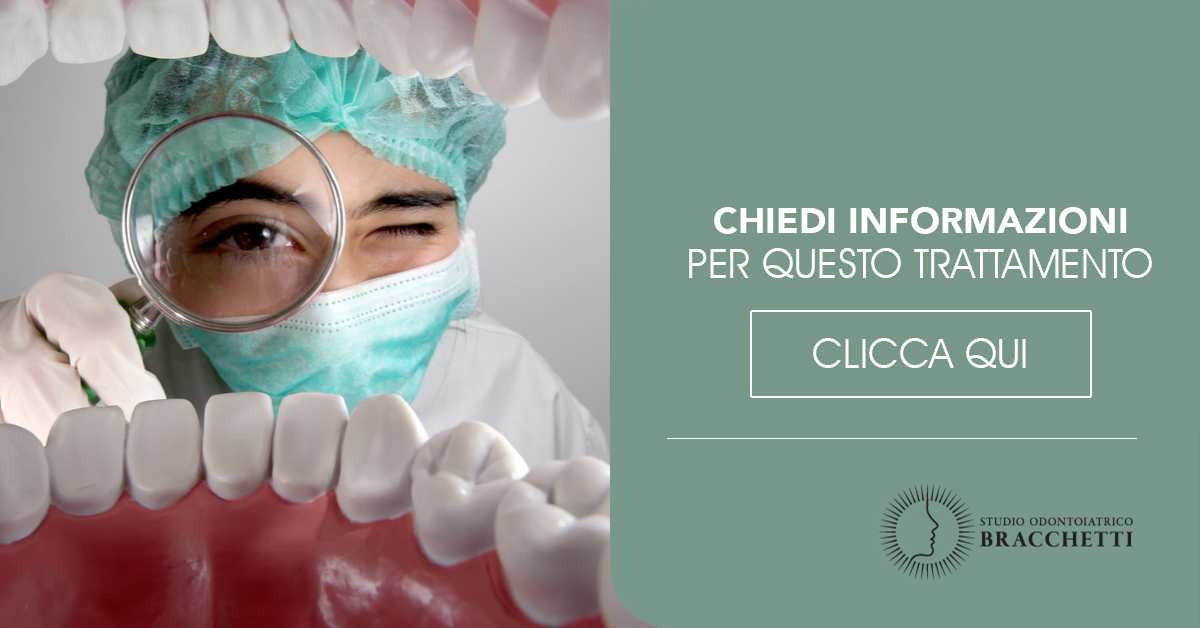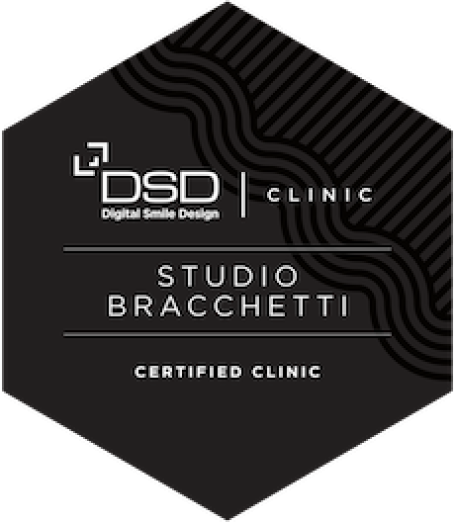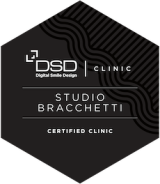Oral surgery, periodontal surgery and implantology
Oral surgery, also called odontostomatological surgery, is a branch of dentistry that deals with part of the surgeries that can be performed in the oral cavity. For over 80 years, from generation to generation, we at the Bracchetti Dental Clinic in Milan have been dealing with oral surgery.
Let's find out together what are the interventions we carry out, concerning various pathologies of the teeth and mouth in general.
Today the border between Oral Surgery, Periodontal Surgery (which also includes Periodontal Surgery) and Implantology is thinner. Very often combinations are performed simultaneously of Oral Surgery and Implantology, and of Implantology and Mucogingival Surgery for example.
Surgical interventions to cure periodontitis
Some of these interventions fall within the scope of surgery to cure periodontitis. Periodontitis (once called pyorrhea) is a disease that leads to the formation of bone loss and gaps between the teeth, the so-called periodontal pockets. If not treated, this bone loss can lead to tooth loss.
If the periodontal pockets exceed a depth of 5 mm or more, it often becomes impossible to remove plaque and bacteria and thus maintain good hygiene. More and more often, attempts are made to treat these cases in a conservative non-surgical way, but if this is not effective, periodontal surgery must be carried out to remove plaque and bacteria. The space that is created between the teeth is due to the recession of the bone. To explain it comprehensively, the operation is carried out by making a small incision on the gum to clean the surfaces of the teeth.
This is an intervention with a very important purpose. Poorly treated periodontitis can also lead to tooth loss. We care about the health and beauty of your smile and that's why we advise you not to underestimate the symptoms of periodontitis.
So if you notice bleeding gums, elongated teeth, hypersensitivity to heat and cold, bad breath, gum discomfort, then it could be periodontitis. The advice we give you is not to waste time and immediately undergo a specialist dental examination carried out by a periodontist.
Untreated periodontitis could lead to serious damage, such as tooth loss. Losing your teeth means losing your smile.
Tooth extraction
Among the most common oral surgeries is tooth extraction. In the presence of a wisdom tooth that has little space, or has partially come out (included) and consequently compromises the stability of the adjacent tooth and the possibility of good hygiene, we proceed with extraction. A wisdom tooth in this position has no use and due to the limited space usually present in the oral cavity it can cause pressure on the other teeth and loss of bone support. In the long run, if the wisdom tooth extraction is postponed, it can lead to problems of overlapping/ crowding of the other teeth, problems with caries and also abscesses .
Even a granuloma, a very advanced periodontitis, and advanced caries can create the need for tooth extraction.
Usually if we are forced to go to this type of oral surgery it is because there are no other alternatives. At the Bracchetti Dental Clinic we always say that prevention is the winning weapon. This means not having to go to extremes and not underestimating ailments of the teeth and mouth in the early stages.
Prevention must be done with thorough oral hygiene at home and regular check-ups at the dentist. An early diagnosis is always helpful before arriving at more drastic solutions. Professional cleaning is also very important to clean the points and pockets that a simple brush and dental floss cannot reach.
Dental implantology: surgery to replace missing teeth
Oral surgery with its various specializations was created with the aim of treating and solving the various problems that may arise in the oral cavity.
Since the 1930s the Bracchetti Dental Clinic has put into practice the various evolutionary stages of oral surgery, up to the present day methods.
One of the most common and important interventions carried out in our office is Dental implantology, or the replacement of missing teeth. Missing teeth is not only an aesthetic problem but also a functional one. This results in adverse consequences for the functions of chewing and speaking.
Through implantology we proceed to replace a missing tooth by applying an artificial root in titanium or ceramic to the jawbone. This process is called osseointegration. After this step, the prosthesis, i.e. the artificial tooth or teeth, is then applied to the implant.
Sometimes this can happen simultaneously with the insertion of the implant (immediate load) or the prosthesis is applied 2-6 months later.
Jaw surgery and non-surgical treatment of occlusion: gnathology
In dentistry there is a particular branch that studies and takes care of the movements of the jaw. This is called gnathology and is a medical branch we deal with in our office.
The most frequent problems in the jaw derive from malocclusion, or a misalignment between the upper and lower dental arch. The most severe forms of malocclusion must be treated with corrective and sometimes surgical orthodontics.
Before getting to the surgery, we perform a series of checks on the jaw and the type of dental occlusion. In addition to the use of diagnostic tools, we also pay attention to the symptoms felt by the patient. In this regard, we remind you that informing patients about symptoms is fundamental for us. When the patient is aware of what is happening and communicates this well this in turn helps dentists' resolve a problem.
Bone regeneration
Another important type of oral surgery is that of bone regeneration.
These procedures are performed in the presence of bone pockets with a particular conformation that cannot be cured with conservative therapy in circumstances in which it is not possible to insert the implants due to lack of bone.
But what does bone regeneration mean? The same words indicate a process by which we obtain a reconstruction of bone tissue on which we will insert implants or treat pockets and bone losses. With these procedures new bone will be formed.
With regards to the materials used either bone is taken from the jaw itself (autologous bone), or synthetic biocompatible artificial bone granules are used, or freeze-dried and biocompatible sterilized bone granules of animal origin (heterologous bone).
There are therefore numerous fields of oral surgery that we have tried to summarize here. At the Bracchetti Dental Clinic in Milan you will therefore receive all-round assistance.
If you would like to make an appointment at the Bracchetti Dental Clinic in Milan click Request form - Or < strong> you can write us on whatsapp and if you want to talk to the secretary you can do so easily by calling the office by clicking here
















